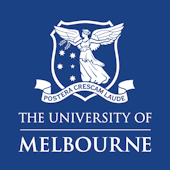I am an evolutionary biologist, working as a Future fellow in the School of BioSciences at the University of Melbourne, Australia. I did my undergraduate degree at LaTrobe University, where I majored in conservation biology and ecology. I completed my PhD at the University of Melbourne, investigating limits to adaptation in rainforest species under the supervision of Prof. Ary Hoffmann. I then moved to Monash University, where I worked as a research fellow for Prof. Carla Sgro before being awarded APD and DECRA fellowships.
My research aims to understand the potential for species to respond adaptively to environmental change and identify what factors underpin climate change resilience and vulnerability.
Some of the questions my research aims to address are:
What are the ecological and evolutionary factors that drive species’ distributions?
What traits underpin climate adaptation and vulnerability?
To what extent can phenotypic plasticity and evolutionary genetic responses contribute to climate change resilience?
Do restricted and widespread species differ in their capacity to respond adaptively to climate change?
Does adaptive potential change under different environments?
Can we predict which species and habitats will be most vulnerable to climate change?
Do insect endosymbionts influence climate vulnerability and adaptive responses?
What can we do to increase the resilience of species to climate change?
To tackle these questions, I employ a combination of inter and intra-specific comparative studies, as well as quantitative genetic experiments and experimental evolution. My research primarily uses the insect model Drosophila, but I have also examined climatic adaptation in butterflies. Drosophila are a great model for exploring complex evolutionary and ecological questions. They have short generation times and can be easily reared and manipulated under laboratory environments. There are also many different species, adapted to a range of different climate niches and with differing range sizes.
Experience
-
–presentFuture Fellow, The University of Melbourne
Education
-
2008The University of Melbourne, PhD
- Melbourne, Australia
- Website
- @bvanheerwaarden
- Article Feed
- ORCID
- Joined


